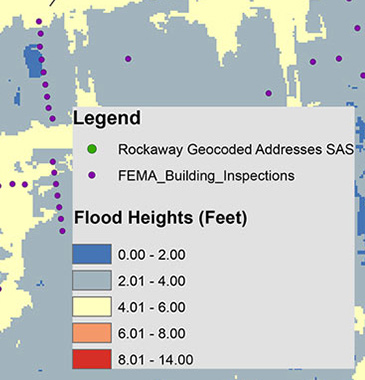I have the privilege of directing a team that is entirely dedicated not only to overcoming the major challenges of health care delivery today, but to making dramatic differences across the Mount Sinai Health System (MSHS), and inspiring other institutions around the world to do the same. Our faculty and staff have worked tirelessly to develop the Institute’s research agenda and priorities, forging collaborations throughout MSHS and with external partners. Recognizing the tremendous importance of quality control, improved health care delivery, and better patient outcomes, Trustees of the Icahn School of Medicine at Mount Sinai approved our founding in 2014, and the Institute for Healthcare Delivery Science (I-HDS) has been going strong ever since.
We have taken our lead from the priorities set by the MSHS Quality Leadership Council, the body charged with overseeing quality and efficiency improvement throughout the Health System. Although all members of the Council are also members of I-HDS, a subset has been appointed exclusively to our Research Advisory Subcommittee to ensure that we focus most on the areas where our Health System is facing its greatest challenges and has the largest need for strategic innovation. Our team provides leadership, strategic initiatives, hospital operations, value analysis, and population health management services. We have initiated a number of challenging and exciting projects covering a broad range of topics, both completed and ongoing.
Among our other successes, I-HDS supported the Tisch Cancer Center grant proposal, primarily on the Biostatistics Core, which garnered an “excellent-outstanding” rating through external review. Those contributions helped Tisch achieve National Cancer Institute designation, an honor shared by fewer than 70 centers nationwide.
Our Institute has successfully launched multiple new projects within a relatively short period of time, in part because we engaged a broad range of frontline clinicians and trainees, including early-career researchers, residents and fellows, medical, graduate and undergraduate students. By actively participating in our projects, these individuals substantially broadened our Institute’s reach while gaining invaluable research experience, mentorship, and analytic support to boost their own expertise and career prospects. Our distinguished external partners also played a key role in helping us obtain considerable funding so that we could participate in cutting-edge research with innovative methodologies.
As a team, we have published well over 20 peer-reviewed studies. We continue to research, to collaborate, to pool our resources, to build on critical relationships, to expand the reach and depth of our collaborations, so that we can identify and address relevant questions about the strategies we must embrace in order to advance clinical care.
For too long now, health care delivery in the United States has been fragmented, with no common thread between national and state policies, individual institutions, and their providers. We may be facing an uphill battle, but we are doing so with optimism and fortitude, a solid track record of progress, an energetic, top-tier team, and an incredible, diverse breadth of resources across a leading Health System and School of Medicine. I have high hopes and great confidence in our ability to continue improving the effectiveness, safety, and efficiency of patient care throughout the Mount Sinai Health System. I would like visitors of this site to join I-HDS as a member, bring their ideas to the membership meet and greet meeting, and develop collaborative projects for finding solutions.
Madhu Mazumdar, PhD, is a professor of Biostatistics at the Department of Population Health Science and Policy at the Icahn School of Medicine at Mount Sinai. Previously, she was founding Chief of the Division of Biostatistics and Epidemiology at Weill-Cornell Medical College, New York and Associate Attending Biostatistician at Memorial Sloan Kettering Cancer Center. Dr. Mazumdar completed a fellowship in Executive Leadership in Academic Medicine (Drexel University, 2011), and has a PhD in Statistics (Penn State University, 1991), an MS in Mathematics (University of Pittsburgh, 1987), and a MA in Statistics (Delhi University, India, 1985).
